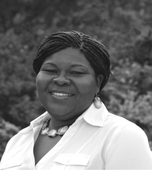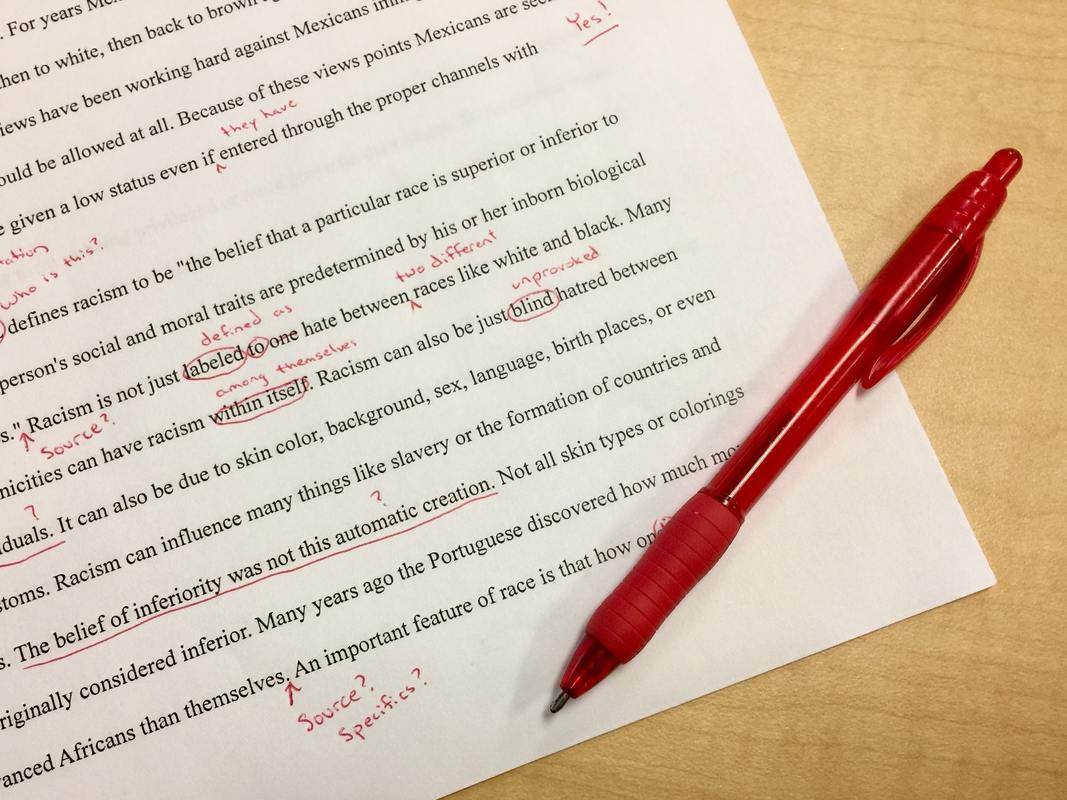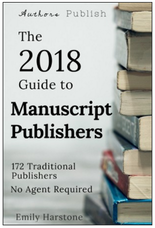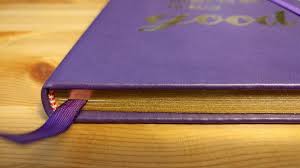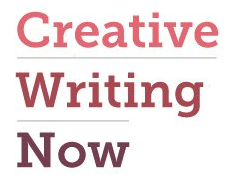Writing is a Journey
|
My journey as a published author began in 2006, but my journey as a writer began many years before that. Writing a novel can be one of the most exciting times in one's life. That novel can consume your entire focus, all of your spare time, and every ounce of your brain power. And that's just the initial manuscript. Once it cools, the editing begins, and that takes even more time, energy, and thought. Unfortunately, books are not in their final state on the first attempt. Editing can take months or even years and can (and should) involve many people. During the editing process, I generally begin working on the cover, and posting about my upcoming book on my social media. Finally, one day, I have that final, hopefully, perfect book in my hands and available for sale to family, friends, and hopefully some strangers! Then comes the hard part--marketing!
|
|
I am Author, Kimberly Griffith Anderson. The information provided is based on my experiences publishing eight books--four fiction and four nonfiction. All of my work has been self-published, but with three very different companies. During this course, I will share what I have learned along the way, offering suggestions and sharing some missteps. If you desire my assistance following this course, please email me at [email protected]. |
Thinking About Becoming a Writer
|
What's your favorite style of writing to read?
How is your writing different? Who are some of your favorite authors? Have you read their story? What do your favorite authors have in common? Do you share that commonality? What is it about a book that makes you want to read more? How will your book capture the attention of readers? What turns you off about a book? How will you ensure that your book will not turn your readers off? What are your writing goals? Do you set personal deadlines/goals and hold yourself accountable? |
Basic Steps to Becoming a Published Author

1. Ponder your idea. Write your book. Make it great!
-Type, don't handwrite.
-Use MS Word or Google Docs.
2. Edit your book.
-After you finish your own editing, ask 5-10 diverse acquaintances
to read it, mark mistakes and give you feedback.
-Obtain your copyright.
3. Determine your publishing route.
-Self-publish or traditional route.
-Explore your options.
4. Format your book to meet the specifications of the
publishing company.
-Determine your trim size.
-Design your cover. (Professionally)
-Write the description for the back of the book.
-Take a professional author photo.
-Fix everything suggested by those who read your manuscript.
-Reformat the book to trim size, set mirror margins, headers/footers, page numbers, etc. to meet the specifications of your publisher.
-Obtain a copyright.
-Obtain an ISBN number.
-Set a price for your book.
5. Send the book to the publisher.
6. Develop a marketing plan.
-Set goals.
-Use your social media platform.
-Develop and maintain a website.
-Type, don't handwrite.
-Use MS Word or Google Docs.
2. Edit your book.
-After you finish your own editing, ask 5-10 diverse acquaintances
to read it, mark mistakes and give you feedback.
-Obtain your copyright.
3. Determine your publishing route.
-Self-publish or traditional route.
-Explore your options.
4. Format your book to meet the specifications of the
publishing company.
-Determine your trim size.
-Design your cover. (Professionally)
-Write the description for the back of the book.
-Take a professional author photo.
-Fix everything suggested by those who read your manuscript.
-Reformat the book to trim size, set mirror margins, headers/footers, page numbers, etc. to meet the specifications of your publisher.
-Obtain a copyright.
-Obtain an ISBN number.
-Set a price for your book.
5. Send the book to the publisher.
6. Develop a marketing plan.
-Set goals.
-Use your social media platform.
-Develop and maintain a website.
Developing Your Voice
|
Every author must develop his/her voice. A book is more than information. Like your dinner plate, it's all about the presentation. An author's voice is more than tone, more than attitude, more than approach--it is all of those things. Authors must consider their audience and how that group of people would like to have information presented to them. Imagine standing in front of a crowd of the people you would most like to read your book and speaking your book to them--not reading it to them, but telling them the story. How would you do it? How would you organize your points? How would you tell the stories? How much background information would they need? Would you speak in 1st person, 2nd person, or 3rd person point-of-view? How would you engage them to laugh, cry or feel what you intend?
|
1st, 2nd or 3rd Person Point of View
http://www.thebeginningwriter.com/2012/03/look-at-different-types-of-point-of.html
Writer's Voice: What it is and How to Develop Yours
http://simplewriting.org/writers-voice/
Voice in Writing: Developing a Unique Writing Voice
http://www.writersdigest.com/editor-blogs/there-are-no-rules/voice-in-writing-developing-a-unique-writing-voice
http://www.thebeginningwriter.com/2012/03/look-at-different-types-of-point-of.html
Writer's Voice: What it is and How to Develop Yours
http://simplewriting.org/writers-voice/
Voice in Writing: Developing a Unique Writing Voice
http://www.writersdigest.com/editor-blogs/there-are-no-rules/voice-in-writing-developing-a-unique-writing-voice
Resources for Writers
|
Citation Machine - creates citations for citing resources
http://www.citationmachine.net/ Grammar Book https://www.grammarbook.com/ The Purdue Online Writing Lab https://owl.english.purdue.edu/ 13 Rules for Correct Comma Usage http://www.businessinsider.com/a-guide-to-proper-comma-use-2013-9 Writer's Digest https://www.writersdigest.com/ Writer's Weekly https://writersweekly.com/ |
Marketing Your Book
"Either write something worth reading, or do something worth writing about." Benjamin Franklin
Marketing, for me, has been the most difficult part of becoming an author. For some reason, I think I believed that everyone who knew me, friend or family, would be so amazed that they personally knew an author, that they would all want to but my book. That did not happen. I think I also believed that because my book (Good Girl) was so good, so realistic, with so much meaning that once a few people read it, it would become the hottest new book on the market, and my sales would skyrocket! That did not happen.
What’s worse is I would attend book signings, and sometimes people would walk past me and not even look at my book! I was insulted and felt invisible. I had absolutely no reason to keep writing—except that I was hearing voices and needed to take down what was coming to me. These experiences forced me to examine why I write. It began to feel like a huge waste of valuable time. After sulking and spending some time in prayer, I have learned/realized that I write because I want to make a contribution to the world that will outlast my life. When we leave this world, the only thing we leave are memories and memories in writing last a long time. I realized that God gives me characters who struggle to live a righteous life, but eventually learn from their mistakes and begin to try to live a life that honors God. It could be that my books will keep someone from some sin they have been contemplating if they can see the potential aftermath through my character(s). I have realized that what I write is important and people need the lessons they teach. I have realized a few more things, too:
1) If I truly write to bring honor to God, I do Him a disservice by failing to promote the books He gave me to write.
2) Every book is not for everyone. If someone doesn't stop by my table, then the book is not for that person.
As a self-published author, book promotion is my job. I do not have a publisher with any money at stake for my books. I personally, however, have invested money and time, into the books and need to spread the word in order to sell them.
Many books later, I have found that the two books I thought would be the most difficult to promote have been my greatest sales. A Girls' Guide to Abstinence and A Guys' Guide to Abstinence have become quite popular. Many parents want their children to know about abstinence in a world where the popular message about sexuality is quite different. Overall, I would say that my four nonfictional books have had greater success than my four novels. I believe this is because I make a better sales pitch for them. It is easier to convince someone why they need a book about some truth than it is to convince someone that your story is a good one.
My advice for promoting your book(s):
1. Develop an "elevator speech" about your book. You must be able to sell your book in a short time.
2. Have a website, change it frequently and promote it.
3. Develop a YouTube presence.
4. Develop a social media presence.
5. Set monthly sales goals.
6. Always carry some books in your car.
7. Always carry business cards in your wallet - be sure your email address is correct.
8. Seek out events where you can set up a table to sell books.
9. Check with local bookstores about selling your book(s) in their store.
10. Accept invitations to speak. Often churches and schools invite authors in as guest speakers.
11. Frequently post about your books on social media.
12. Say yes to every opportunity that comes your way. Read more.
Never stop writing and promoting.
What’s worse is I would attend book signings, and sometimes people would walk past me and not even look at my book! I was insulted and felt invisible. I had absolutely no reason to keep writing—except that I was hearing voices and needed to take down what was coming to me. These experiences forced me to examine why I write. It began to feel like a huge waste of valuable time. After sulking and spending some time in prayer, I have learned/realized that I write because I want to make a contribution to the world that will outlast my life. When we leave this world, the only thing we leave are memories and memories in writing last a long time. I realized that God gives me characters who struggle to live a righteous life, but eventually learn from their mistakes and begin to try to live a life that honors God. It could be that my books will keep someone from some sin they have been contemplating if they can see the potential aftermath through my character(s). I have realized that what I write is important and people need the lessons they teach. I have realized a few more things, too:
1) If I truly write to bring honor to God, I do Him a disservice by failing to promote the books He gave me to write.
2) Every book is not for everyone. If someone doesn't stop by my table, then the book is not for that person.
As a self-published author, book promotion is my job. I do not have a publisher with any money at stake for my books. I personally, however, have invested money and time, into the books and need to spread the word in order to sell them.
Many books later, I have found that the two books I thought would be the most difficult to promote have been my greatest sales. A Girls' Guide to Abstinence and A Guys' Guide to Abstinence have become quite popular. Many parents want their children to know about abstinence in a world where the popular message about sexuality is quite different. Overall, I would say that my four nonfictional books have had greater success than my four novels. I believe this is because I make a better sales pitch for them. It is easier to convince someone why they need a book about some truth than it is to convince someone that your story is a good one.
My advice for promoting your book(s):
1. Develop an "elevator speech" about your book. You must be able to sell your book in a short time.
2. Have a website, change it frequently and promote it.
3. Develop a YouTube presence.
4. Develop a social media presence.
5. Set monthly sales goals.
6. Always carry some books in your car.
7. Always carry business cards in your wallet - be sure your email address is correct.
8. Seek out events where you can set up a table to sell books.
9. Check with local bookstores about selling your book(s) in their store.
10. Accept invitations to speak. Often churches and schools invite authors in as guest speakers.
11. Frequently post about your books on social media.
12. Say yes to every opportunity that comes your way. Read more.
Never stop writing and promoting.
Two Weeks of Writing Prompts
Writers must write on a regular basis. Journalling is a method by which a writer practices writing in different genres, writing with different goals, experimenting with alternative voice. Ultimately journalling can help an aspiring writer to master his craft.
1. Download and complete the I Am Poem Template here.
2. Write the back of the book description of the story of your life.
3. What is your favorite movie? What do you enjoy so much about it?
4. Pretend this friendly alien kidnapped you and took you to his planet. Write about the experience with meeting his family.
5. What is your favorite motivational quote? Why does it motivate you?
6. What is your best piece of advice to the younger generation? Explain.
7. Read the poem, Our Deepest Fear, by Marianne Williamson. What line strikes you most, why?
8. Write a haiku about the book you are writing. See format.
9. Pretend each photo is on the cover of a book. Write the back cover description. Pic 1 Pic 2 Pic 3
10. Pretend you were on your way to work and realize that you forgot to brush your teeth. You search for a piece of chewing gum before you go inside to work. Pretend you find a piece of old, never chewed, but nearly unwrapped gum in the crease between the seats (men) OR in the bottom of your purse (women). Write about the gum's strange taste and/or texture.
11. Write a fictional short story about something you unintentionally did, that made someone very angry.
12. You didn't know your neighbor had a dog, but she rings your doorbell with a dog crate in her hand. Something terrible has happened and she must go out of town overnight and cannot take her dog. She asks you to keep him overnight, but begs you not make him stay in the crate the whole time. See the dog. What's her name and how do you warm up to her?
13. Write a fictional account of your GPS leading you the wrong way. What makes you realize you are not headed the right way?
14. For the book you are writing, outline the beginning, climax and the ending. Give a few supporting details for each section. Keep your outline to 1-page. What do you envision for the front cover?
If you have exhausted these prompts, you may need 365 more! Click below!

